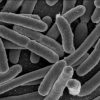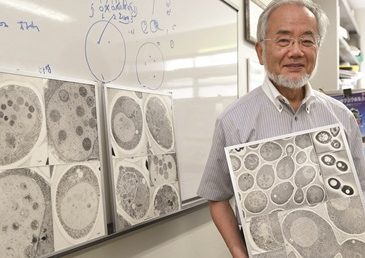
An illustrious chemist who has previously shed light on critical shortcomings in scientists’ understanding of evolution has written a detailed essay explaining “the massive gaps in our understanding” of how life first originated.
Dr. James Tour is a professor of chemistry, computer science, and materials science and nanoengineering at Rice University. He has written over 590 research publications and over 100 patents, and he is the recipient of numerous scientific awards.
As previously reported, Tour has spoken and written extensively about current limitations in various scientific fields. Even the theory of evolution, which has been largely embraced by the secular scientific community, fails to account for the complexity of life, Tour says.
In his most recent paper, a 12,000-word essay titled “Animadversions of a Synthetic Chemist,” Tour tackles a question that has puzzled scientists for centuries: Where did life come from? The essay was published in the most recent edition of Inference: International Review of Science.
“Life requires carbohydrates, nucleic acids, lipids, and proteins,” Tour wrote in his essay’s opening lines. “What is the chemistry behind their origin? Biologists seem to think that there are well-understood prebiotic molecular mechanisms for their synthesis.”
“They have been grossly misinformed,” he stated. “And no wonder: few biologists have ever synthesized a complex molecule ab initio. If they need a molecule, they purchase molecular synthesis kits, which are, of course, designed by synthetic chemists, and which feature simplistic protocols. Polysaccharides? Their origin? The synthetic chemists do not have a pathway. The biologists do not have a clue.”
Tour then walks the reader through the molecule-making process, drawing from his experience as a synthetic organic chemist. To create even simple molecular structures, careful design and laborious purification are required.
The chemical-synthesizing process is enormously complex, requiring intelligent, meticulous oversight.
“Chance may favor the prepared mind, but good things rarely happen only by chance,” Tour reasoned. “How does nature do it? Are the biologists sure that they know the answer? Are they very sure?”
Later in his essay, Tour considers must-have elements of life, including carbohydrates, DNA, and RNA. He also references the work of Albert Eschenmoser—a respected synthetic chemist who was determined to create life’s ingredients in a lab but eventually decided to change direction and research other areas because his findings were unsatisfactory. Tour says this underscores the impossible task facing scientists who want to replicate life creation—abiogenesis—in a lab.
“Under prebiotic conditions the reaction in question is not likely to yield anything useful. With each added step, difficulties are compounded by improbabilities so overwhelming that no other field of science would depend upon such levels of faith,” he wrote. “Abiogenesis research would never be accepted in any other area of chemistry. The field is its own best enemy.”
Brilliant scientists, abundant funding, exhaustive scientific literature, and state-of-the-art lab equipment have combined forces to create “a dream team” of scientific research. Surely today’s scientists are capable of solving the abiogenesis question, Tour reasons. And yet, despite all this, current evolutionary ideas for the origin of life amount to nothing more than wishful thinking—“extrapolation on steroids.”
“Those who think scientists understand the issues of prebiotic chemistry are wholly misinformed,” he continued. “Nobody understands them. Maybe one day we will. But that day is far from today. It would be far more helpful (and hopeful) to expose students to the massive gaps in our understanding. They may find a firmer—and possibly a radically different—scientific theory.”
“The basis upon which we as scientists are relying is so shaky that we must openly state the situation for what it is: it is a mystery,” he concluded.
A special message from the publisher…
 Dear Reader, our hearts are deeply grieved by the ongoing devastation in Iraq, and through this we have been compelled to take a stand at the gates of hell against the enemy who came to kill and destroy. Bibles for Iraq is a project to put Arabic and Kurdish audio Bibles into the hands of Iraqi and Syrian refugees—many of whom are illiterate and who have never heard the gospel.Will you stand with us and make a donation today to this important effort? Please click here to send a Bible to a refugee >>
Dear Reader, our hearts are deeply grieved by the ongoing devastation in Iraq, and through this we have been compelled to take a stand at the gates of hell against the enemy who came to kill and destroy. Bibles for Iraq is a project to put Arabic and Kurdish audio Bibles into the hands of Iraqi and Syrian refugees—many of whom are illiterate and who have never heard the gospel.Will you stand with us and make a donation today to this important effort? Please click here to send a Bible to a refugee >>






